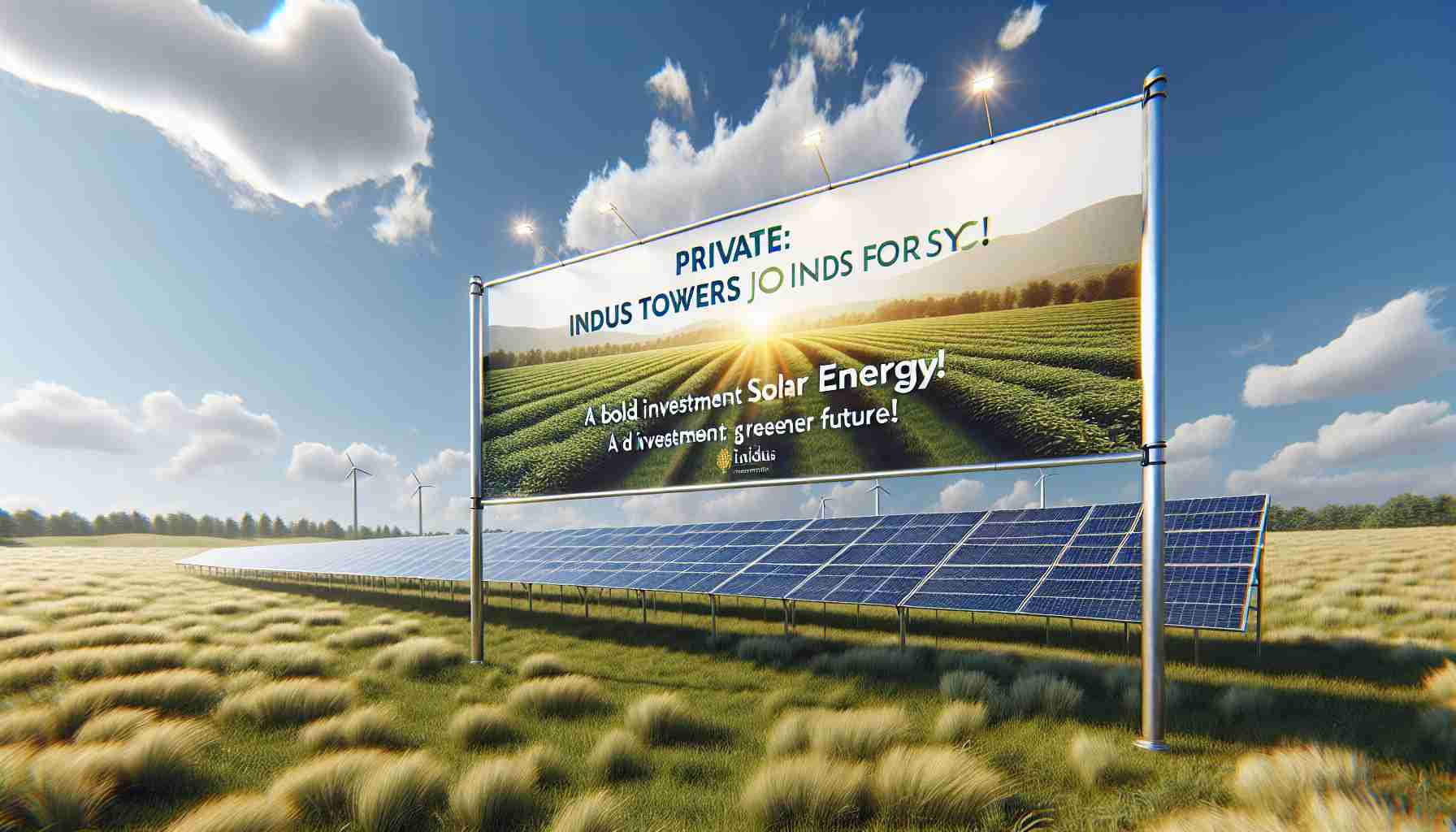Indus Towers Signs Major Solar Power Agreement
In a significant move toward sustainability, Indus Towers Ltd., based in Haryana, has entered into a Power Purchase Agreement with JSW Green Energy Eight Ltd. This agreement allows Indus Towers to harness 130 MW of solar power in a captive capacity, reflecting a strategic shift towards renewable energy.
The investment amounts to approximately INR 38.03 crore, which will secure Indus Towers a 26 percent equity stake in the newly formed special purpose vehicle (SPV), JSW Green Energy Eight Limited. Established on October 18, 2024, this SPV is designed exclusively for developing renewable energy projects.
With plans to launch the solar photovoltaic plant by March 2026, pending necessary regulatory approvals, Indus Towers is poised to enhance its energy supply while aligning with India’s commitment to renewable energy growth. This partnership represents Indus Towers’ dedication to reducing its carbon emissions and embracing environmentally responsible practices.
By integrating clean energy initiatives into its operational framework, Indus Towers aims to solidify its role as a leader in the telecommunications infrastructure sector while contributing meaningfully to the broader transition towards renewable energy sources in India. This endeavor marks a pivotal step in the company’s journey toward a sustainable and efficient energy future.
Indus Towers Champions Renewable Energy with Groundbreaking Solar Agreement
In a bold step towards sustainability, Indus Towers Ltd., headquartered in Haryana, has forged a transformative Power Purchase Agreement with JSW Green Energy Eight Ltd. This deal permits Indus Towers to tap into 130 MW of solar power on a captive basis, underscoring its commitment to renewable energy integration.
Key Investment Details
The total investment for this initiative stands at approximately INR 38.03 crore, resulting in a 26 percent equity stake for Indus Towers in the newly established special purpose vehicle (SPV), JSW Green Energy Eight Limited. Launched on October 18, 2024, this SPV is specifically oriented towards the development of renewable energy projects in India.
Project Timeline and Goals
Indus Towers aims to unveil the solar photovoltaic plant by March 2026, pending the necessary regulatory approvals. This initiative is a part of the company’s broader strategy to enhance its energy supply while aligning with India’s ambitious goals for renewable energy expansion.
Pros and Cons of the Agreement
Pros:
1. Sustainability Goals: Leverages clean energy, contributing to reduced carbon emissions.
2. Financial Stake: The equity stake in the SPV enhances financial investment in renewable technologies.
3. Energy Independence: The direct access to solar power can stabilize energy costs and supply.
Cons:
1. Regulatory Challenges: The success of the project is contingent on obtaining necessary regulatory approvals.
2. Initial Investment: Significant upfront investment could impact short-term profitability.
3. Market Volatility: Fluctuations in the renewable energy market may affect long-term returns on investment.
Innovations and Market Trends
The partnership between Indus Towers and JSW Green Energy is indicative of a wider trend in the telecommunications sector, where companies are increasingly investing in sustainable solutions to meet regulatory demands and societal expectations. As industries globally prioritize decarbonization, such agreements are becoming essential to maintain competitive advantage.
Use Cases and Specifications
1. Telecommunications: Renewable energy can power telecom towers, reducing operational costs and enhancing sustainability.
2. Smart Grids: Integration with smart grid technology to optimize energy consumption across networks.
3. Rural Connectivity: Renewable energy sources could facilitate tower operations in remote areas, driving digital inclusion.
Pricing and Financial Outlook
Investments in renewable energy are expected to yield significant long-term savings. As energy prices fluctuate, by investing in solar power, Indus Towers aims to mitigate the risk of price volatility and dependency on traditional energy sources.
Security and Environmental Aspects
Transitioning to renewable energy not only helps in achieving corporate sustainability goals but also aligns with global efforts to combat climate change by minimizing carbon footprints. Indus Towers’ move to integrate solar energy is a demonstration of its corporate responsibility and proactive measures in energy management.
Future Predictions
Given the current trajectories in the renewable energy sector, Indus Towers is expected to set a precedent in the telecommunications industry. As more companies recognize the importance of sustainability, partnerships like the one with JSW Green Energy are likely to emerge as benchmarks for success.
Indus Towers’ endeavor marks a pivotal moment in its transition towards a sustainable energy future, showcasing its leadership in the telecom infrastructure arena. To learn more about Indus Towers and their initiatives, visit Indus Towers.
